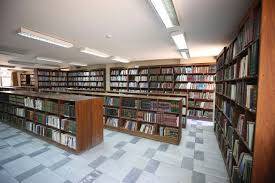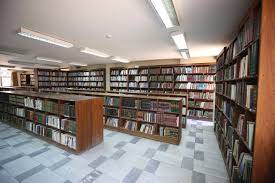Iraqi owners of private libraries may be the most perplexed among others. They have carried their libraries from one exile to another, and their wait for return has been long; as soon as one dark era ends, a darker one comes. This has been the preoccupation of Mir Basri (d. 2006), Najda Fathi Safwat (d. 2013), Muhammad Makkiya (d. 2015), and hundreds of others. My friend, researcher Jalil Al-Attiya, wrote me a letter stating: "I remember you once wrote about the fates of Iraqi libraries after departure. I have been organizing my library for about three years, consisting of ten thousand books and prints, collected over sixty years. It includes rare heritage, literary, and social books, among others. I have offered this matter to several Iraqi universities and institutions, but I have received no benefit... I only want it to be housed in a section bearing my name." Moreover, Jalil is significant in his research and feels the pain of what has become of his country at a catastrophic level, while treasures are being looted east and west. The land of literature and science, as noted by Abu Ahmad bin Abu Bakr Al-Katib, who is not doubted in his testimony since he comes from the lands beyond the river: "He followed in the poetic verse of the people of Iraq, and his speech traveled far and wide" (Al-Tha'alibi, *The Orphan of Time*). He said, "Do not be surprised by an Iraqi I have seen for him a sea of knowledge or a treasure of literature." Those who see what people are enacting today in personal matters and sectarian occasions have the right to ignore what the son of the scribe said and what Al-Attiya lamented, for he is satisfied with "Eastern Treasures" (seven volumes) as fulfillment to his teacher Korkis Awad (d. 1993).
This serves as an introduction to the dilemma faced by Najoud Nouri Jafar (1914-1992) in republishing her father's significant works in terms of both quantity and quality after publishers rejected them. These works contained original sciences and ideas. Subsequently, she found a way to open her father's library to researchers and readers, thus establishing the "Nouri Jafar Light Library." This marvelous invention was not seen by Jafar, a product of human intellect, which has made significant efforts in studying its own thinking mechanism; it is well known that time does not degrade light paper.
However, a corner of the library evokes sadness, namely the "lost books," including: "Rare Cognitive Abilities in Mathematics from the Perspective of Brain Sciences," "Ideological Struggle in Modern Science," and "Between Physiology and Psychology." Perhaps a passionate scribe will uncover them.
The psychology student John Dewey linked all his writings to his primary specialization; when he addressed Al-Jahiz (d. 255 AH), he took on a psychological perspective, and the origin was a research paper for a conference in Basra, in celebration of his thousandth birthday (1983), where he wrote about "The Brothers of Purity": "The Cause of the Soul in the Letters of the Brothers of Purity" (Arab Horizons 5/1978). This reflects the science and its foundations, as trees are known by their fruits.
When you examine his research on Al-Jahiz and the Brothers of Purity, you find him to be a historian and psychologist who analyzed history philosophically and its occurrences psychologically, classifying "history in its field and philosophy." Thus, you see him immersed in history without abandoning it, resulting in his works bearing a historical tint rooted in psychology.
What motivates Jafar to write "Psychological Aspects in the Literature of Al-Jahiz"? Beyond his passion for the most famous creators of heritage. His admiration for Ali ibn Abi Talib led him to classify “The Philosophy of Governance in the Imam” (1957), without letting sectarian bias tarnish his mind, as if he were responding to those who have tainted his mind from a position of authority. Also, his love for the Arabic language is evident in his work "Places of Elegance and Beauty in the Arabic Language."
I see light as a passageway for those troubled by the fates of their intellectual legacies, who have been besieged by circumstances and feel impotent. The light library is a solution, and the sheets of light will endure through days and eras, protected and surviving against what conflicts may destroy today, and against prolonged ignorance against it. How many works of prominent scholars have become consumed by sight and blocks of nerves, used as shop wrappings, and fuel for fires? There is perhaps no safer refuge than the light repository.
It is worth noting a common misconception, unverified, about the death of Nouri Jafar, that he was killed in Libya. The truth is he died of natural causes; I state this to absolve the Libyans of his blood.




